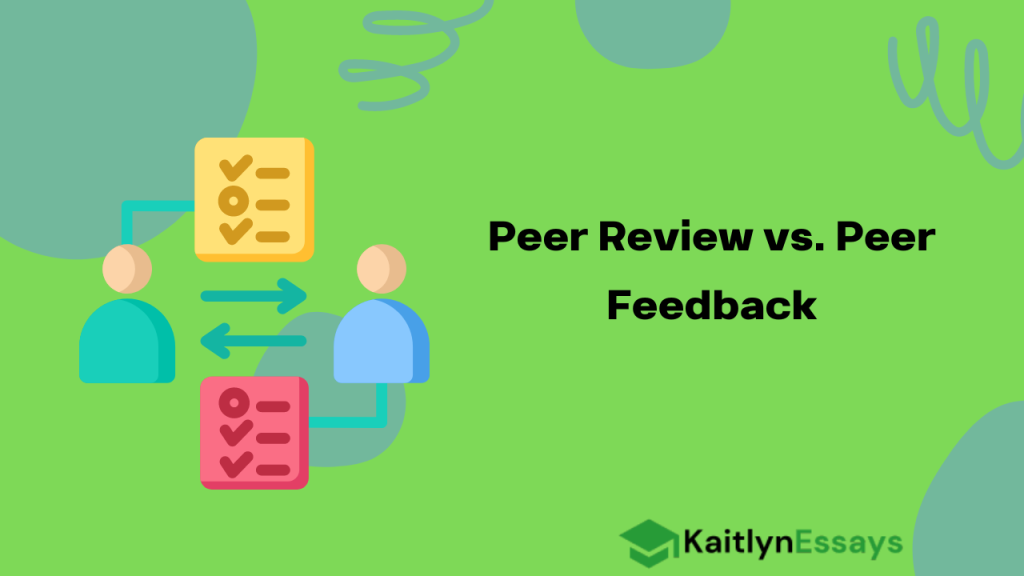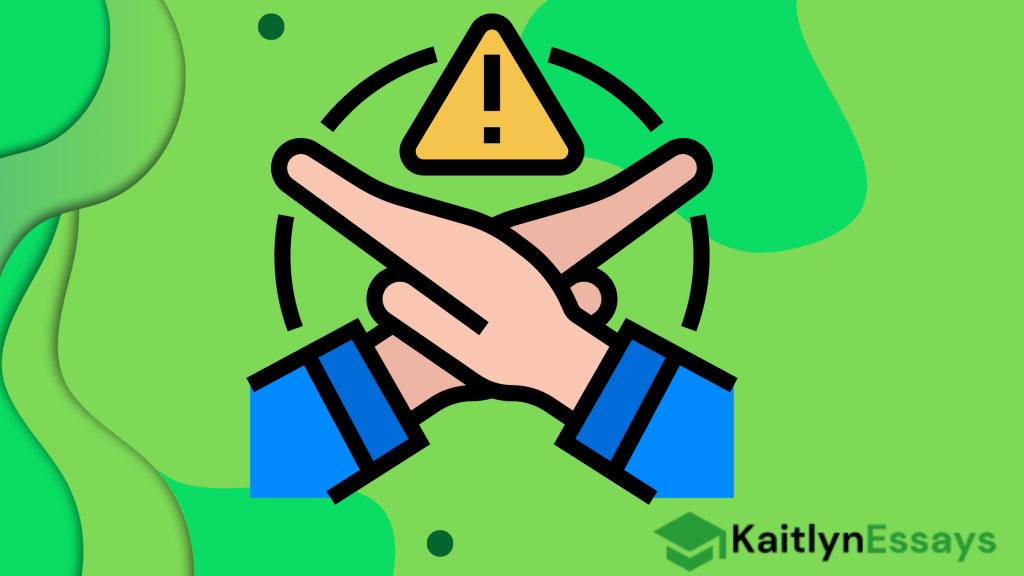
In education, academia, and professional development, the practice of evaluating and improving work through collaborative efforts has long been recognized as valuable. Two prominent methods in this sphere are peer review and peer feedback. While these terms are sometimes used interchangeably, they represent distinct processes with unique characteristics, applications, and outcomes. Peer review, often associated with academic publishing and scientific research, is a formal, structured process where experts in a field critically examine the work of their colleagues before it’s published or implemented. This rigorous evaluation aims to ensure the quality, validity, and originality of research and scholarly work.
On the other hand, peer feedback is typically a more informal, ongoing process used in various settings, from classrooms to workplaces. It involves individuals of similar status or experience level sharing observations, suggestions, and critiques about each other’s work or performance. This approach is often seen as more collaborative and focuses on continuous improvement and learning. By understanding the similarities and differences between peer review and peer feedback, we can gain insights into how these processes contribute to knowledge creation, skill development, and quality assurance across various fields. This analysis will also consider how these methods have evolved in the digital age and their role in fostering a culture of continuous improvement and collaborative learning.
Don’t let your academic obligations consume you.
Our writing services are here to provide the support you need. Let our professional writers handle your essays, reports, and other assignments, freeing up your time to study, attend classes, and maintain a healthy work-life balance.
1. Definitions and Objectives:
Peer Review:
Peer review is a formal process in which scholarly manuscripts, such as research papers, articles, and grant proposals, are evaluated by experts in the field before publication. The primary objective of peer review is to assess the quality, validity, and significance of the research, ensuring that it meets the standards of excellence within the academic community. Peer review helps to identify errors, biases, and methodological flaws, providing constructive feedback to authors and guiding editorial decisions regarding publication.
Peer Feedback:
Peer feedback, on the other hand, is a more informal and collaborative process in which colleagues or peers provide constructive criticism and suggestions to improve a manuscript or research project. While peer feedback may occur at various stages of the research process, such as during the drafting of a manuscript or the development of a research proposal, its primary objective is to support the author in refining their work and enhancing its clarity, coherence, and impact.
2. Process and Structure:

Peer Review:
The process of peer review typically follows a structured and formalized procedure established by academic journals and publishing houses. Manuscripts submitted for peer review are assigned to anonymous reviewers with expertise in the relevant field. Reviewers evaluate the manuscript based on predetermined criteria, such as originality, methodology, significance, and clarity of presentation. They provide detailed feedback and recommendations to the authors and make recommendations to the editor regarding the manuscript’s suitability for publication.
Peer Feedback:
Peer feedback, on the other hand, is often less structured and more flexible in its approach. It may involve informal discussions, written comments, or collaborative editing sessions between peers. Peer feedback can occur within research groups, academic departments, or professional networks, allowing authors to receive input from colleagues with diverse perspectives and expertise. Unlike peer review, which focuses primarily on evaluating the quality of research, peer feedback emphasizes collaboration and mutual support among scholars.
3. Benefits and Advantages:
Peer Review:
Peer review offers several benefits to both authors and the academic community as a whole. For authors, peer review provides valuable feedback and suggestions for improving their research, helping them strengthen the quality and validity of their work. Peer-reviewed publications are also considered prestigious and reputable within the academic community, enhancing authors’ credibility and visibility in their field. Additionally, peer review helps maintain the integrity and reliability of scholarly literature by ensuring that published research meets established standards of excellence.
Peer Feedback:
Peer feedback fosters collaboration, learning, and professional development among scholars. By soliciting input from peers, authors can gain fresh insights, perspectives, and ideas to enhance their research. Peer feedback also promotes a culture of constructive criticism and continuous improvement within academic communities, encouraging scholars to engage in open dialogue and exchange of ideas. Furthermore, peer feedback can help authors identify potential issues or weaknesses in their work early in the research process, enabling them to address these issues before submission for formal peer review.
4. Limitations and Challenges:

Peer Review:
Despite its many advantages, peer review has several limitations and challenges. The peer review process can be time-consuming and may result in delays in the publication of research findings. Moreover, peer review is subject to biases and inconsistencies, as reviewers’ judgments may be influenced by personal preferences, disciplinary norms, or methodological paradigms. Additionally, peer review may not always detect errors or flaws in research, leading to the publication of misleading or erroneous findings.
Peer Feedback:
Peer feedback also faces challenges, particularly regarding the quality and reliability of the feedback provided. Unlike formal peer review, which involves anonymous experts evaluating manuscripts based on predefined criteria, peer feedback may vary widely in its rigor and thoroughness. Additionally, peer feedback may be influenced by interpersonal dynamics, such as power differentials or personal relationships, which can affect the objectivity and effectiveness of the feedback provided. Furthermore, authors may receive conflicting or contradictory feedback from different peers, making it challenging to discern which suggestions to incorporate into their work.
Overview of the Differences
| Aspect | Peer Review | Peer Feedback |
|---|---|---|
| Purpose | Evaluate the quality and validity of work | Provide constructive comments for improvement |
| Formality | Formal | Informal |
| Context | Academic journals, conferences | Classrooms, work environments |
| Process | Often follows a structured format | Can be flexible and varied |
| Outcome | Accept, reject, or suggest revisions | Suggestions for improvement |
| Participants | Experts in the field | Peers or colleagues |
| Frequency | Typically a one-time evaluation | Can be ongoing throughout a project |
| Anonymity | Often anonymous | Often not anonymous |
| Feedback Type | Critical and comprehensive | Constructive and specific |
| Impact | Determines publication or acceptance | Aids in personal or project development |
5. Conclusion:
Peer review and peer feedback are both valuable mechanisms for evaluating and improving scholarly work. While peer review is a formalized process conducted by anonymous experts to assess the quality and validity of research before publication, peer feedback is a more informal and collaborative approach that focuses on supporting authors in refining their work through constructive criticism and suggestions. Both peer review and peer feedback contribute to the advancement of knowledge and the enhancement of research quality within academic communities. However, they differ in their objectives, processes, and outcomes, each offering unique benefits and challenges to authors and reviewers alike.
Time constraints shouldn’t hold you back from academic success.
Let us help you meet your deadlines with confidence. Our prompt and reliable writing services ensure timely delivery without compromising quality. Say goodbye to procrastination and hello to academic excellence – reach out to us today.
FAQs
What is the difference between peer review and peer feedback?
Peer review is a formal process conducted by anonymous experts to evaluate the quality and validity of scholarly manuscripts before publication, whereas peer feedback is a more informal and collaborative approach in which colleagues or peers provide constructive criticism and suggestions to improve a manuscript or research project.
How does the process of peer review differ from peer feedback?
Peer review follows a structured and formalized procedure established by academic journals, involving anonymous reviewers evaluating manuscripts based on predetermined criteria. In contrast, peer feedback is often less structured and more flexible, involving informal discussions, written comments, or collaborative editing sessions among peers.
What are some best practices for providing effective peer feedback?
Effective peer feedback involves providing specific, constructive, and actionable suggestions for improvement, focusing on the strengths and weaknesses of the research. Reviewers should communicate feedback respectfully and professionally, considering the goals and objectives of the author’s work and offering guidance for addressing any identified issues or concerns.
